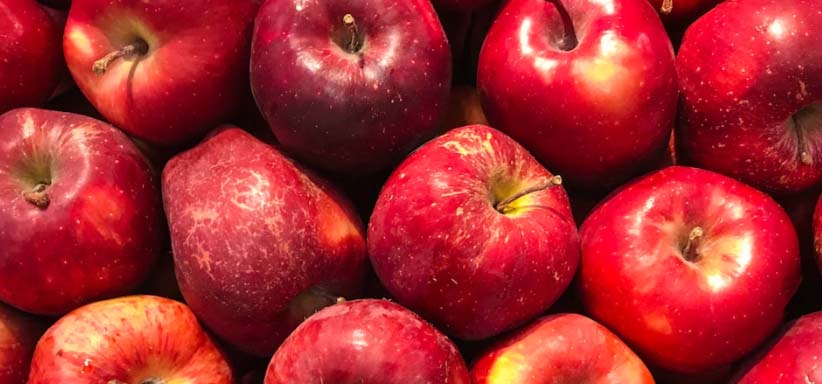When it comes to managing diabetes, making smart food choices is essential. Among the various fruits available, apples hold a special place due to their numerous health benefits. Packed with essential nutrients and fiber, apples can be a valuable addition to a diabetic’s diet. In this article, we will explore the potential benefits of apples for diabetes management and how they can contribute to a healthy lifestyle.

Apples and Blood Sugar Control:
Maintaining stable blood sugar levels is crucial for individuals with diabetes, and apples can play a role in achieving this goal. Apples are a low-glycemic index fruit, which means they have a slower impact on blood sugar compared to high-glycemic foods. The fiber content in apples helps slow down the digestion process, preventing rapid spikes in blood sugar levels.
Apple Nutrition
According to the USDA, one medium apple (182 g) contains:
- Calories: 95
- Protein: 0.5 g
- Total Fat: 0.3 g
- Carbohydrates: 25 g
- Total Fiber: 4.4 g (16% Daily Value)
- Vitamin C: 8 mg (10% DV)

Fiber-Rich Fruit:
Apples are an excellent source of dietary fiber, which is beneficial for diabetes management. The fiber present in apples aids in slowing down the absorption of glucose in the bloodstream, preventing sudden spikes. It also promotes a feeling of fullness, assisting in weight management, which is important for individuals with diabetes.
Antioxidant Powerhouse:
Antioxidants are compounds that protect the body against oxidative stress, a condition linked to various chronic diseases, including diabetes. Apples are rich in antioxidants, particularly polyphenols, which have been associated with a reduced risk of developing type 2 diabetes. These compounds help combat inflammation and improve insulin sensitivity.
Heart Health Promotion:
Diabetes increases the risk of heart disease, making cardiovascular health a significant concern. Apples are heart-healthy fruits due to their high fiber and polyphenol content. The soluble fiber in apples can help lower cholesterol levels, reducing the risk of heart-related complications in individuals with diabetes.
Weight Management Support:
Maintaining a healthy weight is crucial for managing diabetes effectively. Apples are a satisfying and low-calorie fruit that can aid in weight management. Their high fiber content contributes to feelings of satiety, helping control appetite and prevent overeating. Furthermore, the natural sweetness of apples can satisfy sugar cravings in a healthier way.

Versatile and Convenient:
One of the key advantages of apples is their versatility and convenience. They are widely available throughout the year, making them an easily accessible fruit for regular consumption. Apples can be enjoyed in various ways, whether eaten fresh, added to salads, or incorporated into delicious and nutritious recipes. This versatility ensures that individuals with diabetes can incorporate apples into their diet seamlessly.
Conclusion:
Incorporating apples into a diabetes-friendly diet can be highly beneficial for managing blood sugar levels and promoting overall health. With their low-glycemic index, high fiber content, and antioxidant properties, apples offer a range of advantages for individuals with diabetes. Additionally, their heart-healthy benefits and support in weight management further enhance their value as a fruit of choice. So, next time you reach for a snack, consider grabbing an apple, and experience the wholesome benefits it can provide for your diabetes management journey.